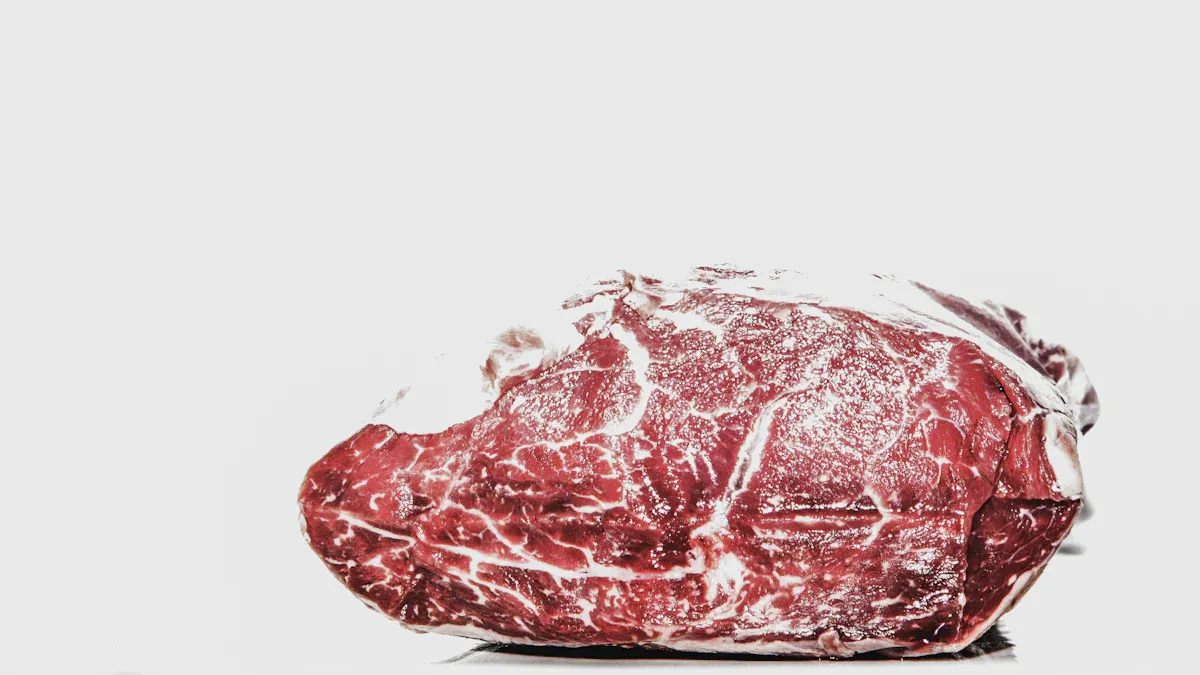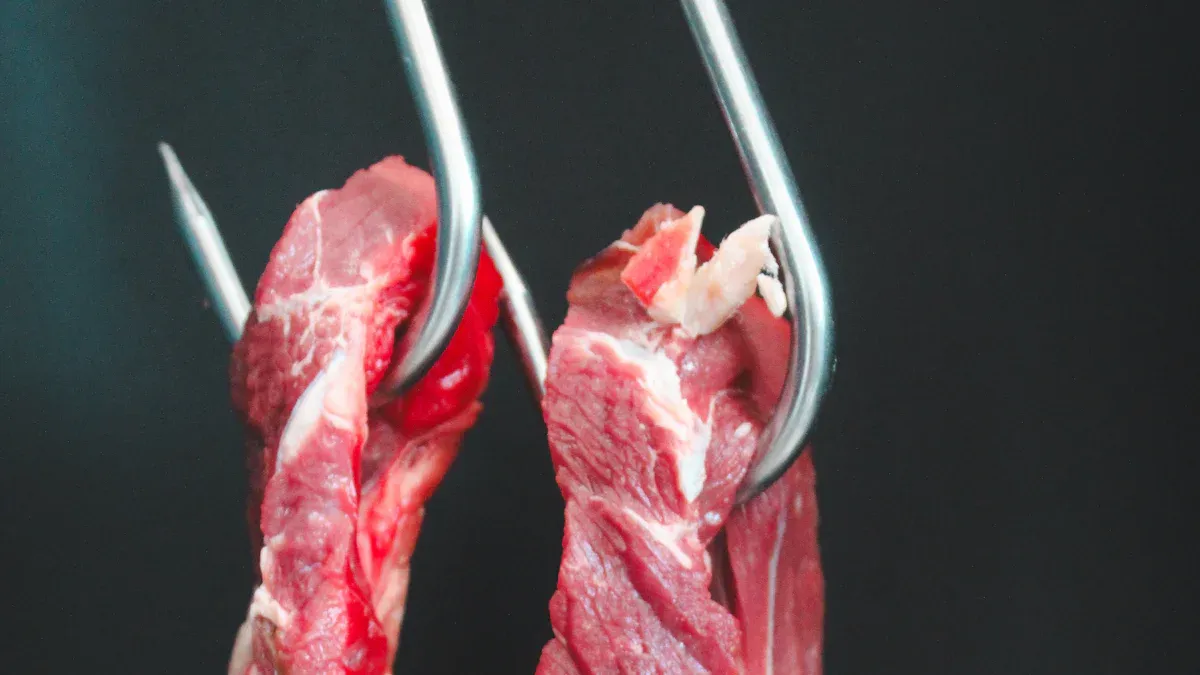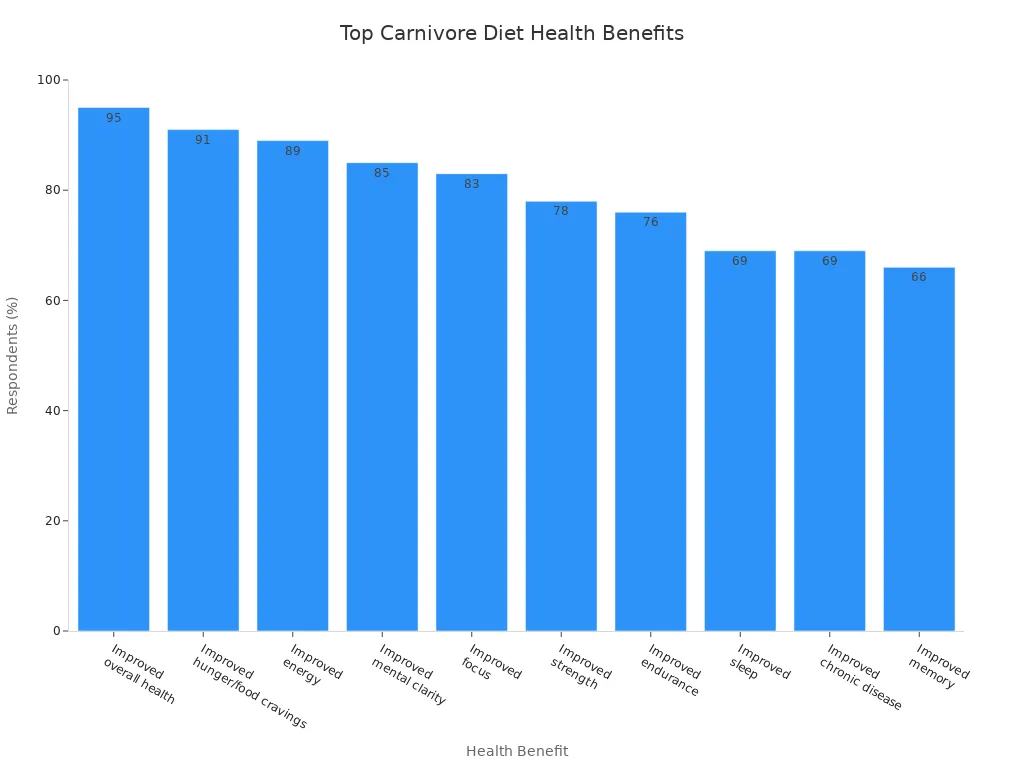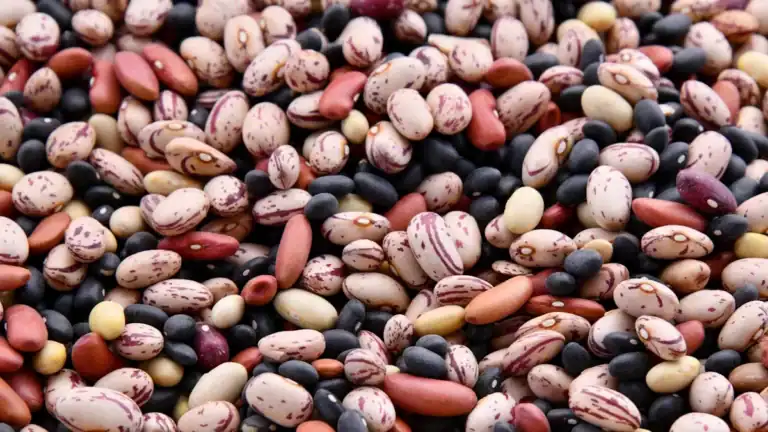
You might wonder what experts and research say about the carnivore diet and its long-term effects on health. Most nutrition organizations agree that the carnivore diet can help in certain clinical situations, but you need to watch for nutrient deficiencies. Studies show that there is not enough strong evidence about the safety and health impacts of the carnivore diet over time. People on this diet often report feeling better and losing weight, but these reports may be biased. The lack of fiber in a carnivore diet can affect your gut health and may lower microbial diversity.
The carnivore diet may challenge traditional views on heart health.
Many people feel satisfied with the diet, though results can be influenced by user bias.
Key Takeaways
The carnivore diet may lead to nutrient deficiencies due to the lack of plant foods. Monitor your health and consider adding foods like eggs or dairy to meet nutritional needs.
Many people find it hard to stick to the carnivore diet long-term due to boredom and social pressures. Plan meals ahead and explore different cooking methods to stay motivated.
Experts warn that high intake of red meat can raise cholesterol levels and increase heart disease risk. Regularly check your cholesterol and consult a healthcare provider if you have health concerns.
While some report benefits like weight loss and improved energy, these results vary. Track your progress and adjust your diet based on how your body responds.
The restrictive nature of the carnivore diet may not be suitable for everyone. High-risk groups, such as those with kidney or heart issues, should consult a doctor before starting.
Carnivore Diet Sustainability

Adherence Challenges
You may find that sticking to the carnivore diet over time presents several challenges. The most common issues include boredom from eating only animal foods and cravings for other types of food. Many people report that the repetitive nature of the carnivore diet makes it hard to stay motivated. You might miss the variety found in other diets, which can lead to a desire for fruits, vegetables, or sweets.
Here is a table showing what challenges people often face and what solutions they try:
Challenge | Description | Solution |
|---|---|---|
Social and Lifestyle Constraints | Difficulty in social settings due to non-carnivore menu options and social pressure from others. | Plan ahead by researching menus, bringing food, and communicating reasons for the diet. |
Dietary Monotony | Repetitiveness of eating only meat can lead to boredom and cravings for other foods. | Experiment with cooking methods, different cuts of meat, and ensure adequate fat intake to curb cravings. |
Social and Financial Factors
You may notice that the carnivore diet can be expensive. High-quality meats often cost more than plant-based foods. Eating out with friends or family may become difficult because most restaurants offer limited carnivore options. Social events can create pressure to eat foods outside your diet. You might feel left out or need to explain your choices often. These social and financial factors make the carnivore diet less sustainable long term for many people.
Note: You can expect that social situations and budget concerns will affect your ability to follow the carnivore diet over time.
Need for Adjustments
You may need to adjust your carnivore diet as your nutritional needs change. Some people find that strict carnivore eating does not provide all the nutrients they need. You might need to add foods like eggs or dairy to help meet your goals. Adjustments can make the diet more sustainable and help you avoid problems like nutrient deficiencies. Real-world adherence rates show that many people struggle to follow the carnivore diet for long periods. You may need to monitor your health and make changes to keep the diet sustainable long term.
Long-Term Health Risks

Nutrient Deficiencies
When you follow the carnivore diet for a long time, you may face several nutritional deficiencies. This diet removes almost all plant foods, which are important sources of many nutrients. You might find it hard to get enough vitamins and minerals that your body needs for good health. Some nutrients are especially difficult to get from only animal foods.
Here is a table showing what nutrients are hard to get on the carnivore diet and what problems can happen if you do not get enough:
Nutrient | Difficulty in Obtaining | Potential Consequences |
|---|---|---|
Vitamin C | Very difficult | Long-term deficiency can lead to scurvy |
Vitamin E | Hard to get | Essential antioxidant deficiency |
Boron | Missing | May affect bone health |
Antioxidants | Missing | Increased oxidative stress |
Fiber | Missing | Digestive issues |
You may also miss out on B vitamins and other micronutrients if you do not eat organ meats. Dr. Paul Saladino points out that people who skip organ meats on the carnivore diet have a higher risk of nutritional deficiencies, especially vitamin C and B vitamins. Many adults in the US already have low vitamin C levels, so this risk increases with a restrictive diet like carnivore. If your blood levels of vitamin C drop below 11.4 μmol/L, you may face serious health problems. Without fiber, your gut may not work well, and you could have digestive issues. This lack of fiber also raises gut health concerns, as your gut bacteria need fiber to stay healthy.
Note: You should watch for signs of deficiencies and talk to a healthcare provider if you notice problems like tiredness, bleeding gums, or frequent illness.
Heart and Kidney Concerns
The carnivore diet can affect your heart and kidneys. Studies show that eating mostly animal foods may raise your LDL cholesterol. High LDL cholesterol links to a greater risk of heart disease. Both processed and unprocessed red meat can increase your risk of heart problems. One large analysis with nearly 30,000 people found that eating more red meat led to more cases of heart disease. Some people on the carnivore diet see better HDL cholesterol and lower body weight, but most experts say you should eat a balanced diet with fruits, vegetables, and lean proteins for better heart health.
You also need to think about your kidneys. High-protein diets like carnivore can make your kidneys work harder. This can cause kidney hyperfiltration and even injury over time. Animal protein may raise your risk of end-stage kidney disease more than plant protein. If you already have kidney problems, a high-protein diet can make them worse. The long term effects of animal protein on healthy kidneys are still not clear. Some studies suggest that the acid load and phosphate in animal foods, along with changes in your gut bacteria, may hurt your kidneys.
Tip: If you have a family history of heart or kidney disease, you should check your health markers often and talk to your doctor before starting the carnivore diet.
Unknown Effects
You may wonder what other risks come with the carnivore diet. Right now, studies do not give clear answers about all the long-term effects. Research results are inconsistent, and many findings have low certainty. This means that experts cannot say for sure what will happen if you stay on the carnivore diet for many years. You could face nutritional deficiencies in thiamin, magnesium, calcium, and vitamin C, which are all important for your body. The diet may also affect your gut and inflammation levels, but more research is needed.
What is still unknown about the carnivore diet?
How it affects your health after many years
If it can cause new or rare deficiencies
How it changes your gut bacteria and inflammation control
If it leads to decreased inflammation or more problems over time
You should remember that the carnivore diet is very restrictive. You may need regular blood tests to check for deficiencies and other health problems. Until more studies come out, you should be careful and watch for any changes in your health.
Health Benefits and Outcomes
Reported Health Benefits
You may notice many people talk about the health benefits of the carnivore diet. Most followers report feeling better after switching to carnivore. You can see a wide range of benefits, including improved energy, better sleep, and sharper mental clarity. Many people say their muscle strength and endurance increase. Some even report improvements in chronic health conditions.
Here is a table showing what health benefits people most often report after following the carnivore diet for at least one year:
Health Benefit | Percentage of Respondents |
|---|---|
Improved overall health | 95% |
Improved hunger/food cravings | 91% |
Improved energy | 89% |
Improved mental clarity | 85% |
Improved focus | 83% |
Improved muscle strength | 78% |
Improved endurance | 76% |
Improved sleep | 69% |
Improved chronic disease | 69% |
Improved memory | 66% |

You may also see these health benefits listed by people who follow the carnivore diet:
Weight loss
Improvements in chronic conditions
Enhanced overall health
Increased energy
Better sleep quality
Improved mental clarity
Enhanced focus
Increased muscle strength
Improved endurance
Better memory
Many people say their muscle recovery improves and they feel less sore after exercise. You might notice better results in your workouts and daily activities. Some people report that their cravings for sweets and snacks go away, which helps them stick to the diet.
Note: You may experience different health benefits depending on your age, activity level, and how strictly you follow the carnivore diet.
Weight and Metabolic Effects
You may wonder what results you can expect for weight loss and metabolic health. Most people who try the carnivore diet see fast weight loss, especially in the first few months. The diet helps you burn fat for energy and keeps your blood sugar steady. You may notice your muscle tone improves as you lose fat and gain strength.
Studies show that low-carb, high-protein diets like carnivore lead to greater fat loss than high-carb diets. You may see better results in your body composition and muscle definition. Research finds that these diets help your body burn more fat and improve insulin sensitivity. This means your body uses sugar better and keeps your blood sugar low.
Here is a table showing what benefits you may see in your metabolic health:
Benefit | Results |
|---|---|
Zero Glycemic Load | The carnivore diet keeps insulin low and steady. |
Improved Insulin Sensitivity | You may see big improvements in insulin resistance markers. |
Reduced Inflammation | Low-carb diets lower inflammation in your body. |
Visceral Fat Loss | High protein and fat diets help you lose fat from your liver and abdomen. |
A study in Frontiers in Endocrinology found that most people with type 2 diabetes who followed a low-carb, high-fat diet for one year reduced or stopped using insulin. Over half reversed their diabetes. You may see similar results if you follow the carnivore diet and keep your carbohydrate intake very low.
Tip: You may want to track your weight loss and muscle gains to see how your body responds to the carnivore diet.
Drawbacks and Limitations
You may face some drawbacks if you follow the carnivore diet for a long time. Many people report muscle cramps, headaches, and bad breath, especially in the first few weeks. You may feel irritable or have mood swings as your body adjusts. Some people notice heart palpitations or brain fog during the transition phase.
Here are common drawbacks people report:
Cravings due to electrolyte imbalance, which can cause muscle cramps
Bad breath from increased acetone production
Heart palpitations linked to changes in hydration and electrolytes
Irritability and mood swings
Headaches, especially early on
Lack of focus or brain fog
Long-term concerns about nutrient deficiencies and high cholesterol from saturated fat
You may find it hard to stick to the carnivore diet because of its strict rules. Many people say the diet is hard to sustain for a long time. You may miss out on important nutrients if you do not eat a variety of animal foods, including organ meats. Some researchers say the results from carnivore diet studies may not apply to everyone. Most studies use self-reported data, which can be unreliable. You may see different results than others because of your unique health needs.
“In addition, the extreme food restrictions imposed by the carnivore diet make it an unsustainable eating plan for most people.”
“The strictness of the Carnivore Diet makes it hard to sustain long-term. The Keto Diet, while also restrictive, offers more variety and flexibility, making it more sustainable for many people.”
Researchers highlight several limitations in carnivore diet studies:
Participant selection bias from recruiting people in carnivore diet communities
Reliability issues with self-reported health data
Lack of validated tools to measure what people eat on the carnivore diet
You should think about these drawbacks and limitations before starting the carnivore diet. You may need to monitor your health and muscle function closely and talk to a healthcare provider if you notice problems.
Long-Term Benefits and Expert Views
Research Findings
You may wonder what research says about the long-term benefits of the carnivore diet. Large-scale cohort studies show that diets rich in plants link to better health outcomes. These studies track thousands of people over many years. You see that plant-based diets often lead to lower rates of heart disease, diabetes, and some cancers. In contrast, most reports about the carnivore diet come from individuals sharing personal stories. These stories often highlight sustained improvements in energy, mood, and weight loss. However, scientists have not confirmed these results with rigorous studies. The lack of strong evidence for the carnivore diet raises questions about its long-term benefits and safety.
You find that experts point out several risks with the carnivore diet. You may face deficiencies in vitamin C, magnesium, potassium, and fiber. The absence of fiber can cause digestive problems and may harm your gut health. High intake of red meat and saturated fat links to increased risk of cardiovascular disease. The carnivore diet may also affect bone health and immune function over time.
Diets high in animal foods may raise cholesterol and impact heart health.
Lack of fiber can lead to gut microbiome changes and digestive issues.
Long-term adherence may affect bone and immune health.
Expert Opinions
You see that registered dietitians and medical doctors agree on the risks of the carnivore diet for long-term use. Most experts do not recommend this diet for health optimization. They warn that the restrictive nature of the carnivore diet makes it hard to get all the nutrients you need. You may experience health problems if you follow the carnivore diet for many years.
Experts raise concerns for specific groups. People with kidney or heart disease, pregnant or breastfeeding women, and those with disordered eating should avoid the carnivore diet. The lack of fiber and essential micronutrients can cause problems for these groups. You should talk to a healthcare provider before starting any restrictive diet.
Note: Experts recommend a balanced diet with a variety of foods for best health outcomes.
Who Should Avoid or Consider the Diet
High-Risk Groups
You should know what groups face the most risk if they try the carnivore diet. Some people have medical conditions that make this diet unsafe. If you have any of these conditions, you should avoid the carnivore diet or talk to your doctor first:
Kidney disease
Cardiovascular disease
Gout or high uric acid levels
Pregnancy or breastfeeding
Digestive disorders
Eating disorders or a history of disordered eating
Nutritional deficiencies
Need for long-term sustainability
People in these groups may have trouble getting enough nutrients or may see their health get worse on a strict carnivore plan. The diet can put extra stress on your kidneys and heart. If you are pregnant or breastfeeding, you need a wide range of nutrients for your baby’s growth. If you have a history of eating disorders, the restrictive nature of the carnivore diet can make things worse.
Tip: Always check with a healthcare provider before starting any restrictive diet, especially if you have a medical condition.
Potential Candidates
Some people may benefit from the carnivore diet, especially if they have certain health goals. If you want to manage your blood sugar or lose weight, you might see positive results. Here is a table showing what characteristics or goals may make you a good candidate:
Characteristic/Health Goal | Evidence Supporting Benefit |
|---|---|
Diabetes Management | Low-carb diets improve blood sugar regulation, with significant reductions in HbA1c levels and diabetes medication use among participants. |
Weight Loss | The diet’s elimination of ultra-processed foods and high protein content may promote weight loss due to increased satiety. |
If you decide to try the carnivore diet, you should monitor your health closely. Experts recommend regular checks of important health markers. This helps you spot problems early and keep your body safe.
Health Marker | Importance |
|---|---|
Cholesterol Levels | Monitor LDL and total cholesterol to ensure they remain within a safe range. |
Fasting Insulin | Assess insulin resistance and overall metabolic health; monitor over time. |
Full Thyroid Panel | Check TSH, T3, and T4 levels to ensure thyroid function is healthy. |
Iron Levels | Regularly check ferritin and total iron-binding capacity to maintain healthy iron levels. |
Folate and Homocysteine | Monitor levels to prevent cardiovascular risks associated with low folate. |
Chronic Stress Markers | Track DHEAS and cortisol to assess stress response. |
HbA1c | Monitor for long-term blood sugar control and early signs of diabetes. |
Liver Function Tests | Regularly check ALT and Gamma GT for liver health. |
Sex Hormones | Test testosterone, estrogen, and SHBG for overall hormonal health. |
High-Sensitivity CRP | Regularly test for inflammation markers to detect chronic disease. |
Note: Careful monitoring helps you stay safe and get the most benefit from your diet.
You see that the carnivore diet is highly restrictive and difficult to sustain long-term. Research shows high saturated fat intake may raise your risk of heart disease and nutrient deficiencies. Experts report common side effects such as digestive issues, muscle cramps, and changes in menstrual cycles.
Key Aspect | What You Should Know |
|---|---|
Sustainability | Most people find the carnivore diet hard to follow for long periods. |
Safety | High red meat intake links to heart and kidney risks. |
Health Outcomes | No strong evidence supports long-term benefits for weight or hormone health. |
You should focus on quality animal foods, diversify protein sources, and monitor your health closely.
Always talk to a healthcare professional before making major changes to your diet.




